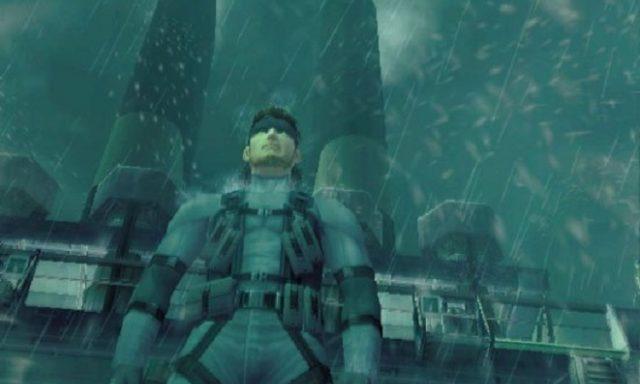Video games have changed from the heyday of the PS2 era, and not necessarily for the better.
The video game demo used to be a hallowed art form and sometimes became classics in their own rights, but in the modern era the demo is few and far between.
There are a number of reasons for the decline of the demo - some financial, some artistic, but mainly cultural.
The sad truth is the era of full-fledged demos like 'Metal Gear Solid 2' or demos being given away with game magazines are well and truly behind us and it will remain that way because the industry has changed too much.
A major factor in the decline of the demo is the advent of early access for titles on PC.
With so many games receiving some degree of crowdfunding in the modern era and Steam's policy of allowing developers to put games on early access, games are in a perpetual demo state.
This applies to the likes of indie titles and not the triple-AAA sector, but this is another crucial factor.
So many games spend a good chunk of their time in early access giving audiences the chance to play the game, and it would cost smaller developers more to create a curated demo.
With indie game development being as small and scrappy as it is, taking up resources and time to make a demo could detract from the finished product.
Another factor in the decline of the game demo? Games are more graphically advanced now than in the era of the brilliant 'Metal Gear Solid 2' demo, but this has resulted in games being smaller in terms of overall content.
The best example of this quirk of modern gaming is 2011's 'Deux Ex: Human Revolution', a game that certainly looks impressive even today, but it has all the depth of a puddle compared to the 2000 original.

Games theoretically could have the graphics of 'Crysis' and gameplay that is as deep and rewarding as the original 'Deus Ex' but it would take up an incredible amount of resources and would bring consoles to their knees.
There's a reason the likes of 'Skyrim', 'Grand Theft Auto' and 'Fallout' don't have game demos - trying to create a demo for a game that is predicated on open-world game design is near-impossible.
Giving players a taste of 'Grand Theft Auto' but not letting players drive around (ie, the main appeal of the game) would be like showing someone a 'Fast and Furious' movie but only showing one of the talky bits and not the action it's known for.

In the cases of some indie games, putting the game out in demo form - for free, no less - would be giving away a large chunk of the game.
Even at the higher end of game development, however, where developers have the resources and time to put out a demo, the vast majority have declined to produce demos for their games.
In their case, the reason is more cynical: the pre-order bonus culture and buying a game for full price at retail is how developers make money, and if a demo is crap, chances are the final game will be too.
The early 2010s saw a golden age of demos for games that weren't representative of the final game.
'Watch Dogs' blew audiences and critics away at E3 2012 and Bioshock Infinite' looked utterly incredible at E3 2011, but these were tightly-scripted demos that used features not present in the final game.
The success of the 'Watch Dogs' and 'Bioshock Infinite' demos helped those games become blockbusters years before they even hit shelves.
When gamers got to play the finished products for themselves, the flashy E3 demos they saw may as well have been an episode of 'Murder She Wrote' for as representative they were of the final game.
The backlash was severe, and E3 conferences during the rest of the decade went through great pains to show unfiltered gameplay footage instead of a pre-rendered demo or flashy CGI trailer.
Developers rightfully came under fire for hoodwinking consumers in the wake of the 'Watch Dogs' debacle, and in an attempt to be more transparent with gamers, they showed unedited gameplay footage going forward.
If Ubisoft had released a demo of 'Watch Dogs' before release, gamers would have been mighty disappointed that they weren't getting a generation-defining masterpiece like they had expected, but there was a simple reason for this; developers make the majority of their money from pre-order bonuses.
Still to this day, and in particular as physical sales of game continue to decline, developers can charge upwards of €100 for a game sight unseen for ultimate editions with players getting their hands on the game.
The likes of EA Play have also been a major factor in the decline of gameplay demos, with early reports from players who checked out 'Battlefield 2042' on EA Play giving us an early indication that the game was heading for disaster.
In a sense, the likes of Game Pass and EA Play are natural successors to the traditional demo, but in the case of 'Battlefield 2042' we can see why developers wouldn't be terribly keen for players to get in a significant amount of playtime and not pony up for the finished game.
By losing the art of the video game demo, we are slowly but surely losing a major part of gaming culture and heritage.
As journalists, we get the privilege to play a press build of games before the general public, and we are encouraged by developers to tell them what worked and what didn't.
However, this should not be a privilege granted to those lucky few who were able to become gaming journalists - the public should be able to have a say.
By not giving the public a chance to play a game before they buy, the link between consumer and brand becomes weaker, and the cycle of distrust with publishers continues.
With PlayStation now requiring developers to make demos of their games to be eligible for their revamped PlayStation Plus service, there is hope we can return to the glory days of the tightly-constructed demo that made you want to buy a game.









































































